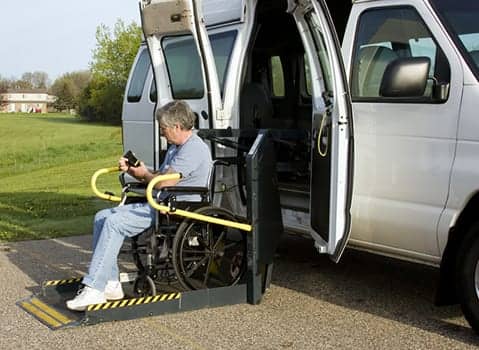The National Aging and Disability Transportation Center (NADTC) has launched “Every Ride Counts,” a national campaign to increase awareness of local transportation options for older adults and people with disabilities in communities across the United States.
The campaign was spurred as the result of findings from a recent national survey, which suggest that older adults and people with disabilities are facing significant transportation-related challenges once they no longer drive.
Respondents note in the survey that they believe there is a lack of accessible and reliable transportation alternatives in their communities, which is preventing them from doing things they want to do and leaves them feeling frustrated, isolated and trapped, notes a media release from NADTC.
“Access to transportation is key to support the health and well-being of older adults and ensure their ability to age in place and have a high quality of life in their community,” says Virginia Dize, Co-Director, NADTC, and transportation program director, National Association of Area Agencies on Aging, in the release.
“Yet this survey reveals that access to transportation that meets their needs is clearly a major challenge. While local transportation options do exist, older adults and people with disabilities do not know about them or have access to them. The goal of our ‘Every Ride Counts’ campaign is to vastly change that.”
KRC Research conducted national quantitative surveys of three audiences from October 19 to November 5, 2018. A 20-minute survey was conducted among 509 adults age 60 and older (309 online, 200 telephone); 513 adults age 18-59 living with one or more disabilities that limit physical activities, seeing and/or hearing (413 online, 100 telephone); and 627 caregivers age 18 to 84 that provide and/or arrange transportation for an adult family member or friend (all conducted online).
“The results of the survey make clear that many older adults feel that giving up the car keys greatly limits older adults’ access to medical care, grocery shopping, and opportunities for socialization, but it doesn’t have to be that way,” said Sandy Markwood, chief executive officer, National Association of Area Agencies on Aging (n4a), the release continues.
“There are excellent transportation programs available, and the Aging Network is aggressively advocating for more resources to ensure all communities, including rural areas, are prioritizing transportation services for older adults and people with disabilities. In this day and age, the inability to drive is no reason for a lesser quality of life,” she adds.
“Over 80 percent of the young adults with disabilities surveyed stated that they’re often prevented from doing the activities that they’d like to do because of lack of transportation or inability to drive. This is life changing and very different than the experience of their cohorts who do not have disabilities,” states Carol Wright Kenderdine, co-director, NADTC, and assistant vice president, transportation & mobility for Easterseals.
“To address this need, particularly in small communities, NADTC recently funded ten community grants to support planning for alternatives, such as volunteer transportation, rideshare options, and expanding transit,” Kenderdine continues.
For more information about the survey as well as detailed results, visit NADTC.
[Source(s): National Aging and Disability Transportation Center, PR Newswire]
'Every Ride Counts' Campaign Aims to Inform About Transportation Options



